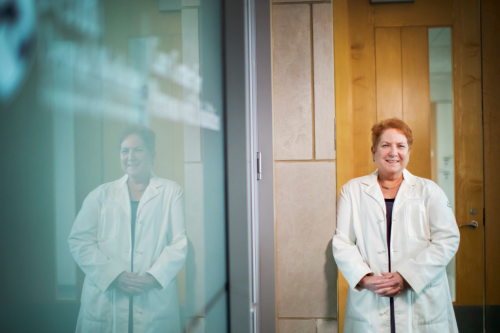| Dr. Miriam Robbins Featured in "Accessible Care for All at a New Dental Center" |
|
Article originally published on Penn Today Accessible Care for All at a New Dental Center
A priority of Dean Mark Wolff, the Care Center for Persons with Disabilities is now seeing patients at the School of Dental Medicine.From the perspective of Mark Wolff, the Morton Amsterdam Dean of the School of Dental Medicine, having a physical or intellectual disability should not alter one’s access to high-quality dental care. And his firm belief is that every dentist should be able to provide that care, no matter what accommodations may be necessary. “A mentor I trained with 40 years ago believed this, and so when I started practicing, I always had a number of patients with disabilities or medical complications,” says Wolff. “I didn’t realize this was a novel way of doing things for a decade or decade and a half.” “A lot of this is demystifying care for this population,” says Miriam Robbins, clinical professor of oral medicine and restorative dentistry, who was recently hired to serve as the center’s director. “There are multiple reasons these patients may have challenges with access to dental care, but part of it is fear of the unknown on the part of dental care providers. Our dental students will have the opportunity to develop a comfort level with these patients that they’ll take into their clinical practice.” Continue Reading |

